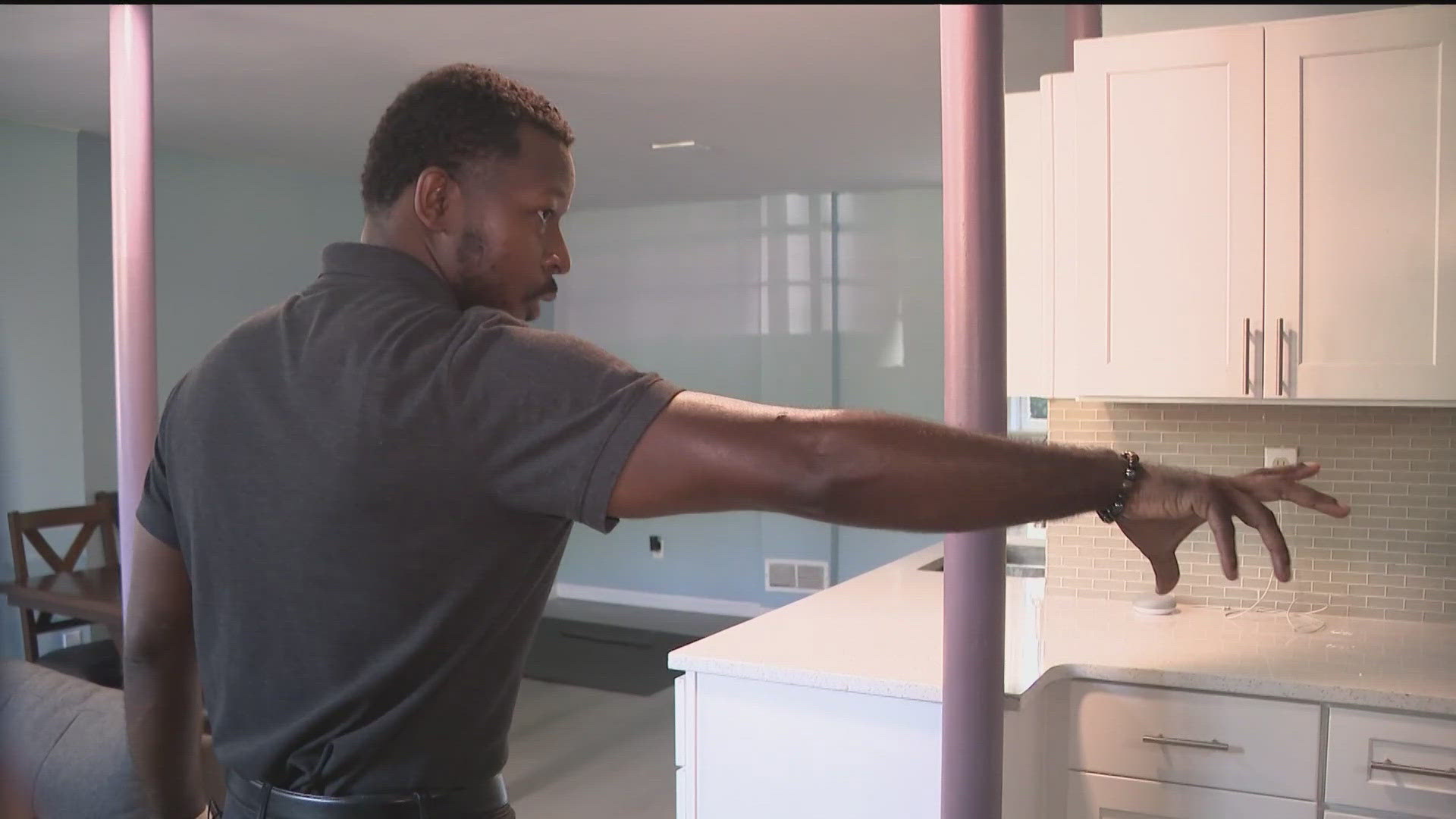ATLANTA — In a tough housing market, a growing number of homeowners are turning to a popular real estate strategy to generate additional income.
"House hacking" refers to purchasing a home, living in part of it and renting out the rest. It can offset the rising costs of homeownership, but it may not be as simple as it seems.
Shawntae Hughes purchased a home in Morrow last year. He furnished the basement and is ready to rent it out. He lives upstairs and plans to charge a tenant $1,200 a month to stay downstairs.
"I’m going to put a full refrigerator in here later on. There's a fireplace. There's also a personal entrance, so they can come in separate from where I come in," Hughes explained.
Hughes works in Atlanta's film industry. Last year, when work slowed during the Hollywood strikes, he relied on extra income from having a tenant for a few months.
“By having a tenant. the idea was getting someone here to make the home pay for itself,” he said.
During that time, he also learned that being a landlord can be challenging as plumbing issues popped up.
“It takes a lot of time. It’s a lot you have to do on your own. You have to be responsible for all of the maintenance." Hughes said.
Daniel Dorfman is the CEO of Atlanta's Roots Investment community. He said that "house hacking" is a great way for people to "stay ahead of the curve." However, he recommends that before one does it, to make sure they have the right space and not make any changes that may decrease the property value.
“Have the basement that can be converted. Have the back of the house that can be converted. Don’t just try to fit a space within your home that might not work," Hughes stated.
Dorfman said it's also important to know the legal implications of being a landlord and follow all city codes and HOA rules.
“A lot of HOAS don’t even allow rentals period. And sometimes they do put blocks on different roommate situations as well. So, digest those rules, understand where your counties are, what your city rules are, what your county rules are, " Dorman explained.
For Hughes, now comes the critical part -- finding a tenant and vetting them. He's hoping to find someone low-key who is looking to rent long-term.

